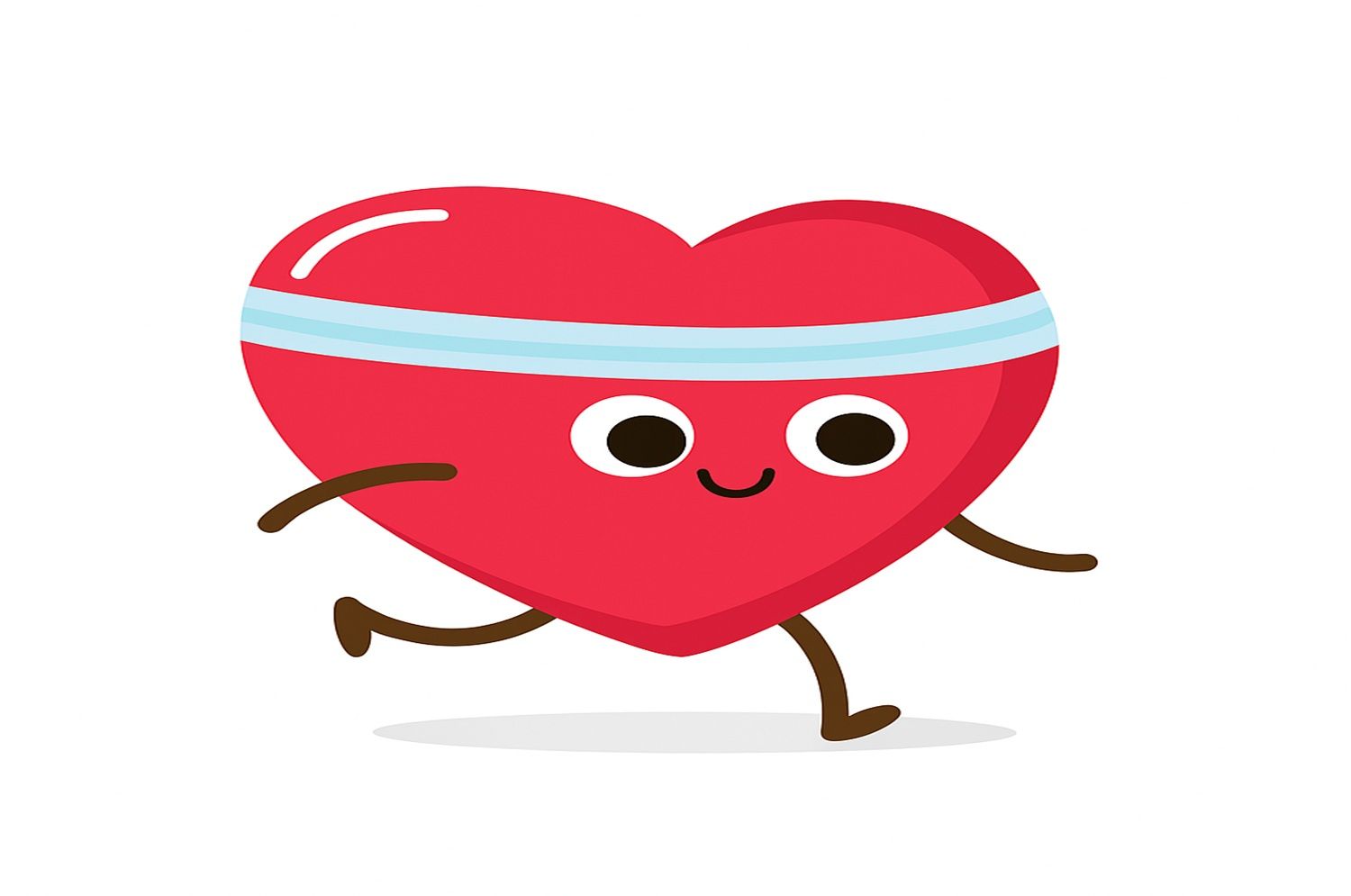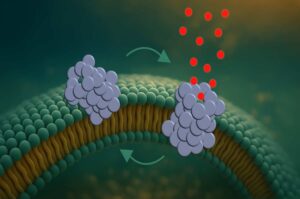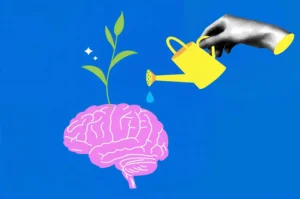Ever laid in bed, ready to sleep, only to feel your heart beating for no reason? You’re not alone. Many people experience this frustrating and sometimes scary symptom. This guide will help you understand why it happens, how to calm yourself, and when to take it seriously.
Table of Contents
ToggleCommon Causes of Fast Heartbeat at Night
Anxiety and Panic Attacks
One of the most common culprits behind a racing heart at night is anxiety. As the mind winds down, suppressed thoughts and worries can surface, triggering the “fight or flight” response. Panic attacks may occur suddenly, making your heart pound, causing shortness of breath, and even creating a sense of doom—especially during the quiet, still hours of bedtime.
Caffeine or Heavy Meals Before Bed
Consuming caffeine late in the day or indulging in heavy, spicy, or fatty meals close to bedtime can overstimulate your system. Caffeine is a stimulant that increases heart rate, while heavy meals can lead to acid reflux or indigestion, both of which can trigger a sensation of rapid heartbeat as your body works harder to digest.
Hormonal Imbalances or Menopause
Hormonal shifts—especially in women during perimenopause or menopause—can lead to nighttime palpitations. Drops in estrogen levels may affect the autonomic nervous system, increasing heart rate variability. Hot flashes and night sweats can further disturb sleep and cause the heart to beat faster than normal.
Sleep Disorders (e.g., Sleep Apnea)
Sleep apnea and other sleep-related breathing disorders can cause temporary drops in oxygen levels during the night. This forces your heart to work harder to pump oxygen-rich blood, often resulting in an elevated heart rate. Frequent awakenings, gasping for air, and snoring are typical warning signs.
Certain Medications or Stimulants
Over-the-counter decongestants, asthma inhalers, antidepressants, and some blood pressure medications can increase heart rate as a side effect. Likewise, recreational stimulants and even some herbal supplements may interfere with your heart rhythm, especially when taken in the evening or before sleep.
How to Calm Your Heart and Fall Asleep
Struggling to sleep because your heart just won’t slow down? You’re not alone. An overactive nervous system, anxiety, or even daily habits can leave your heart racing when it’s time to rest. Here are 6 proven strategies to calm your heart rate and drift into peaceful sleep—backed by science and designed with your wellness in mind.
Try Deep Breathing Techniques
When your heart is racing, slow, controlled breathing helps activate the parasympathetic nervous system—your body’s natural “calm” switch.
Try this: Inhale deeply for 4 seconds, hold for 7, then exhale for 8 seconds. Repeat this 4-5 times to signal your brain it’s safe to relax.
Avoid Caffeine and Sugar Late in the Day
Caffeine and sugar are major sleep disruptors. They stimulate your central nervous system, increase adrenaline, and elevate your heart rate—sometimes for hours.
To sleep better, avoid caffeine after 2 PM and opt for low-sugar snacks in the evening.
Do a 5-Minute Body Scan Meditation
A body scan meditation helps you release physical tension and shift focus from racing thoughts.
Start at your toes, slowly move up to your head, noticing and relaxing each area. You can find free guided scans on YouTube or apps like Insight Timer or Calm.
Use a Weighted Blanket or Cooling Pillow
Weighted blankets provide gentle pressure therapy, shown to lower heart rate and anxiety.
Meanwhile, a cooling pillow helps regulate body temperature, which supports natural melatonin production and faster sleep onset.
Keep a Sleep Diary to Track Triggers
Your racing heart may be linked to diet, stress, screen time, or even certain thoughts.
Keeping a daily sleep log can help identify patterns—when your heart races most, what you ate, how much screen time you had—so you can make targeted changes.
Play Calming Sounds or White Noise
Soothing audio—like rain sounds, ocean waves, or white noise—can ease an anxious mind and regulate breathing.
Try apps like Noisli, Sleep Sounds, or even YouTube. Listening to calming audio can reduce cortisol levels and slow your heartbeat naturally.
When Should You See a Doctor?
Signs Your Symptoms May Be Cardiac-Related
If your heart feels like it’s racing, pounding, or skipping beats—especially when you’re lying down—it might not just be stress or anxiety. Cardiac-related symptoms often include chest pain, shortness of breath, dizziness, or a feeling of faintness. If these accompany your sleep disturbances, it’s crucial to consult a healthcare provider promptly. Ignoring such signs can delay diagnosis of conditions like arrhythmia, high blood pressure, or even early heart disease.
If Sleep Loss Is Affecting Daily Functioning
When poor sleep due to a racing heart starts to impair your work, mood, memory, or focus, it’s time to seek help. Chronic sleep deprivation can contribute to serious health issues including high cortisol levels, weakened immunity, and emotional instability. If you’re feeling drained, irritable, or mentally foggy most days, don’t just push through—get a medical evaluation to find the root cause.
You’ve Tried Relaxation but Still No Relief
If you’ve already tried relaxation techniques—like deep breathing, meditation, herbal teas, or light stretching—and your heart still won’t slow down at night, something deeper may be going on. Persistent symptoms despite self-care could signal an anxiety disorder, hormonal imbalance, or heart rhythm issue. A doctor can run tests, rule out underlying conditions, and suggest personalized treatment options.
Natural Remedies and Lifestyle Changes
Magnesium-Rich Foods for Relaxation
Magnesium plays a key role in calming the nervous system and regulating sleep patterns. A deficiency in magnesium can contribute to anxiety, muscle tension, and insomnia. Integrate magnesium-rich foods into your diet such as leafy greens (spinach, kale), nuts (almonds, cashews), seeds (pumpkin seeds, flaxseeds), legumes, and whole grains. Bananas, dark chocolate (in moderation), and avocado are also excellent options. A magnesium-rich evening meal or a warm glass of magnesium-fortified milk can signal your body it’s time to unwind.
Avoid Blue Light and Late-Night Screen Time
Exposure to blue light from smartphones, tablets, and televisions disrupts melatonin production—your brain’s natural sleep hormone. To improve sleep quality and reduce nighttime anxiety, create a tech-free zone at least 60 minutes before bed. Switch to warm-toned lighting, use blue-light filters if needed, or wear blue-blocking glasses in the evening. Replace screen time with calming activities like journaling, reading a physical book, or listening to soft music to promote natural sleep onset.
Gentle Evening Yoga or Stretching Routine
Light movement before bed can significantly reduce physical tension and mental stress. Gentle yoga poses like Child’s Pose, Legs-Up-The-Wall, and Cat-Cow help activate the parasympathetic nervous system, promoting relaxation. Stretching the neck, shoulders, and lower back releases tension built up throughout the day. Aim for a 10–15 minute session of mindful breathing and slow movements. Pair your routine with soft instrumental music or guided meditations to enhance the calming effect and prepare your body for restful sleep.
Also Read:
The Truth About Ghosts: Science, Stories, and Supernatural Secrets
True Love Explained by Psychology: What Science Says About Real Relationships
FAQ:
-
Why does my heart beat fast when I try to sleep?
A racing heart at bedtime is often due to anxiety, stress, or stimulants like caffeine.
-
Is it normal to feel your heartbeat while lying down?
Yes, especially in quiet settings. But if it’s frequent or disturbing, medical advice is recommended.
-
Can anxiety cause fast heartbeat at night?
Absolutely. Anxiety or panic can spike your heart rate and make falling asleep difficult.
-
How do I calm my heartbeat quickly before sleep?
Practice deep breathing, avoid caffeine, and create a calming bedtime routine.
-
When should I worry about a racing heart at night?
If it’s paired with chest pain, dizziness, or breathing issues—seek medical attention immediately.









